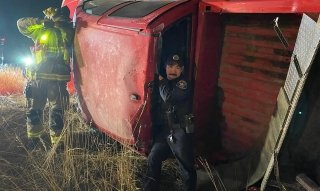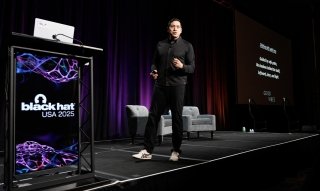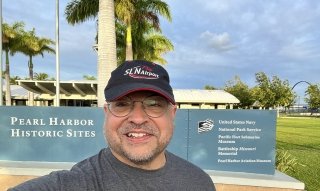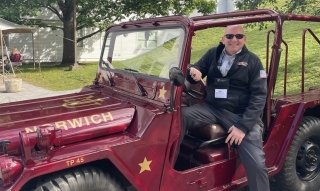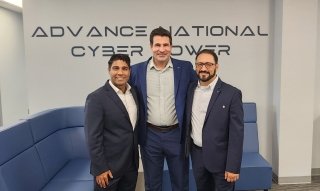Russell Holter
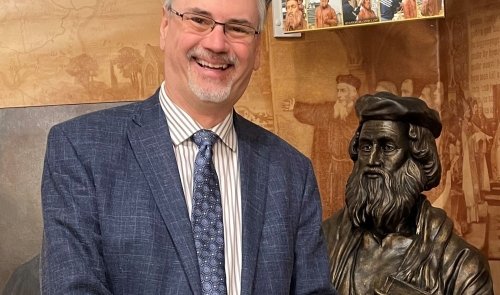
The Norwich academics and disciplined curriculum challenge students to achieve a higher, more professional standard in their research and deliverables.
Q: “Tell us about yourself.”
A: “I am a second-generation Washingtonian raised as an SOB (Son of Builder). I was always the new kid. By the time I graduated from high school, I had attended nine schools and lived in eleven separate homes. As such, I have virtually no childhood friends. I found a passion for writing in my senior year of High School. I dreamt of going into a library and seeing a book I had written on the shelf. That dream came true in 2005.”
Q: “Please describe briefly your professional experience and current employment.”
A: “After completing my term of enlistment with the Army, I enrolled at the University of Washington. My associate history professor guaranteed me a position with his firm upon graduation. I was then selected to work as a Historic Preservation liaison for FEMA. This assignment ended with me working as a Regulatory Compliance specialist for the Department of Archaeology and Historic Preservation. I now own a cultural resource consulting firm and am the President of the Board of Directors of a regional railroad archive facility.”
Q: “What was your motivation for pursuing your degree?”
A: “Working as a Historic Preservationist without meeting the Secretary of the Interior's Standards made for awkward conversations. I was in a dead-end job. I knew I had to move on. And I knew I could use my business degree to launch my consulting practice. I launched out in 2018, forming Cultural Reconnaissance. I used my contacts with the state to land several contracts. However, the tables turned on me when I proposed submitting a report draft to the state for review. I was rebuffed by my former supervisors who told me that I must employ someone at my firm with a graduate level degree or they would simply claim my work did not meet their professional expectations.”
Q: “What are your future professional plans?”
A: “The COVID crisis gave me valuable time to juggle the responsibilities of running a consulting firm and managing Norwich University's expectations. Moving forward, my consultancy is growing, and I no longer fear having conversations about having paid my academic dues to the industry that I love. Upon graduation, I increased my billing rate by 25%. Strangely enough, the only one that noticed was my banker. My degree from Norwich made my election as President of the Pacific Northwest Railway Archive possible. I look forward to mentoring folks looking to transition into the realm of professional history. The future is bright. Perhaps before I retire, I will have my own pool of historians working on projects all across the Pacific Northwest.”
Q: “Why did you choose Norwich?”
A: “By 2020 I had several museum groups built into my portfolio. All were transportation-themed museums. In my discussions with these museum managers, I found that I was outmatched in my grasp of public history. Getting a degree in history would satisfy the state and raise my professional profile among museum professionals. The decision to enroll at Norwich University was easy. Compared to all other online university programs, the history curriculum is one that is specifically tailored for history practitioners. Other programs simply stamp out history teachers of various stripes.”
Q: “Did you have any uncertainties with choosing an online program?”
A: “Several studies were published by independent firms looking at the value of an online graduate program degree. Norwich University consistently ranked high and behind some rather heavy hitters. Despite being an academy, Norwich University's tuition is on par with college out-of-state tuition rates.”
Q: “Prior to beginning your courses, what were some of your expectations for an online degree program?”
A: “I expected to be engaged and challenged. Norwich University gave me the challenges that I needed to understand better how professionals in history are supposed to act.”
Q: “How do you plan to use your degree in your career?”
A: “My graduate history degree from Norwich imparts professional credibility among industry leaders, opening avenues for personal development unobtainable with an undergraduate degree.”
Q: “What has been your biggest personal or professional success since starting your coursework degree?”
A: “The most obvious change since graduating is my communication ability. Auditing my prior work demonstrates a lack of skill. The Norwich academics and disciplined curriculum challenge students to achieve a higher, more professional standard in their research and deliverables.”
Q: “Please tell us about a time in which you could put your knowledge gained in the classroom to work immediately at your job.”
A: “The first project I undertook upon graduation was a feasibility study for the Vermont Granite Museum. Working with a fellow alum, we agreed to perform the work pro bono as a gift to one of our instructors. In doing so, we fulfilled the organization's urgent need while adding publishing experience to our curriculum vitae. In doing so, my colleague was welcomed as a pool writer for a local history journal and is currently contributing to the same.”
Q: “What aspects of your Norwich experience will you carry most strongly with you?”
A: “It may be difficult to imagine, especially with an online program, but the comradery built by the Norwich program is the experience I carry most strongly. Use your Norwich experience to expand your reach and strengthen your network.”

